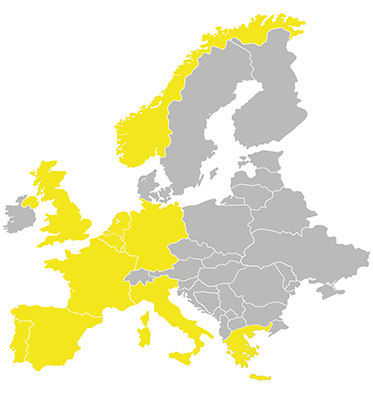When it comes to the Innovate UK managed Smart programme, it is clear that achieving a score of over 85% is the best guarantee of securing funding. Naturally this threshold does vary per round and in some cases this threshold can be higher. However, the reality is that very few submissions achieve this with success rates in 2021 hovering around the 3.13% mark and the majority (57.20% to be precise) scoring below 70%.
With each Smart round (typically 4 per annum) receiving between 750 and 2300 applications, it is clear that competition is consistently fierce for the £25M allocated per round. Choice of topic, project size and therefore grant request can play a key role in helping achieve a favourable outcome as Innovate UK continue to employ a portfolio approach to project selection in this ‘open’ funding competition. However, with Innovate UK relying on the feedback of external assessors in the first instance, the biggest differentiating factor comes from achieving an average score of 8.6 across each of the 10 scored questions. But, how can applicants achieve this…?
We are often asked this question from companies looking to either resubmit failed applications or from first time applicants who are about to start the application writing process. As a company that submits over 120 Innovate UK applications per year (around 70 to the Smart programme, with an average 2021 success rate of 63%), there are a few things that we have picked up:
1. Read the guidance thoroughly!
The first possibly obvious ‘secret’ is to carefully follow the detailed guidance provided by Innovate UK for each question. We continue to be surprised how many applicants fail to do this – often due to the limited word allowance per question. However, by failing to cover each of the stated requirements, you are giving the assessors the opportunity to drop valuable points.
2. Define the addressable market
The second biggest failing goes back to the ethos of the Smart programme. Smart is designed to support game changing commercially orientated R&D projects that have the potential to deliver strong market growth. To demonstrate alignment, it is critical that applicants fully understand the market potential of their solution and account for factors such competitive offerings (established and emerging), market characteristics including growth potential with a validated business model. However, it is these aspects that most applicants fail to covey and often receive the lowest scores in the questions on Market Awareness and Route to market. Performing a quick google search to find the global market potential for a product is no longer enough. Applicants must fully define an addressable market (certainly down to a national level with a clear understanding of number of customers that could be targeted for each year of deployment including evidenced market values).
3. Understand the target customers
Finally, few applicants fully account for the needs of their target customer base. What evidence do you have that the need for the solution is real? Have you already engaged with potential customers and what is the exact value proposition that has been developed as a result? Each of these points need to be clearly conveyed with as much specificity as possible. To support your response, we also recommend that applicants include an advisory board to help guide the project comprising representatives of key customer groups and with letters of support included from prospective end users.
How PNO can support you
Other factors such as having a clear step change in innovation, a carefully defined work plan and an understanding of external impacts are equally important and cannot be overlooked. The UK team has a strong track record in securing funding through the Smart programme, with a full understanding of how a project should be presented to stand the highest chance of success in this highly competitive scheme. We would be happy to share our knowledge and experience of Smart in further detail and welcome the opportunity to qualify any project ideas with you ahead of the next Smart round which closes on the 13th April.
For further information or to discuss a project idea contact us.
Next Smart deadline – 13th April 2022 – find out more here.




